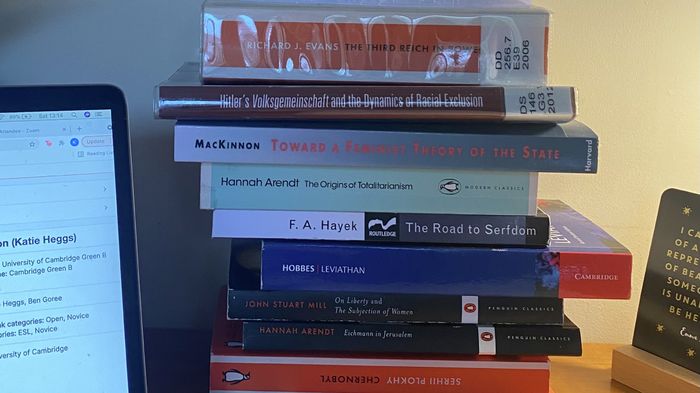When did a trip to the shop become so dystopian?
The securitisation of essential goods reveals a society tackling the symptoms rather than the roots of economic despair, argues Sam Nicholson

Walking through the distinct façades of Cambridge’s numerous chain shops and supermarkets is usually quite a mundane experience. However, a recent trip to a local shop left me feeling uneasy.
Through the doors and past the baskets, I was confronted with small plastic cases. What I found within them gave a deeply unsettling view into the troubles and hardship within the UK’s lived economy.
Initially, I took a double glance at the £1.50 bars of chocolate. I couldn’t accept that such a ‘basic good’ (particularly fruit and nut…) was so highly securitised. I continued up to the meat and fish where every good was individually protected and upon turning the corner, there was an entirely encased wall of instant coffee jars.
“When staple goods must be protected from those consuming them, something clearly isn’t working”
Security tags and cases are not a new feature of commercial spaces, but typically only ‘high-ticket’ items such as premium alcohol and electronics were confined by them. It appears that once ‘simple’ goods are now increasingly securitised from the public consumer. Take for example the recent instances of security-tagged baby formula.
What startled me was the scale and extent I recently witnessed. In any country, purchasing food is a baseline element of survival. When staple goods such as chicken, fish, coffee and chocolate must be protected from those consuming them, something clearly isn’t working.
I shared these photos with others to ensure I wasn’t alone in noticing a newly commonplace feature of shopping. Most of them were astonished by this scale of security boxing, with one student going so far as to say “Where is this? This is unreal?”
The significance of security casing goes beyond the good it protects. In the UK, our economic system is seemingly failing to offer those struggling the adequate means to buy a bar of chocolate or a jar of coffee, now considered ‘high value’ (no wonder, when it can cost upwards of £9). The emerging walls of staple goods protected by small boxes are a physical materialisation of national economic pain. These security changes in grocery merchandising demonstrate the consequences of deep-set inflation and stagnation creeping further onto supermarket shelves and into our social fabric.
“These small boxes are a physical materialisation of national economic pain”
Inflation and economic hardship are national problems, but Cambridge is one of the UK’s most unequal cities where the cost of living can feel akin to the capital. A few months ago, Cambridge News reported that food banking has risen by 41.3% between 2021/22 and 2022/23. This statistic is tragically unsurprising considering the high rates of inflation and the accompanying decline of real-terms income in the UK.
This article is not meant to single out any given supermarket or store, nor suggest that supermarkets shouldn’t uphold fair purchase and protect their goods from theft. But supermarkets, despite their overwhelming choice and the increasingly commodified flamboyance of their products, still supply our most basic need: food.
Ultimately, placing goods under lock and key exemplifies a society doing more to protect merchandise than the people who need it for their livelihoods. Our society is tackling the symptoms of income decline, poverty, and food exclusion, while neglecting the deeper political and economic realities that drive people to the point of desperation.
 Arts / What on earth is Cambridge culture?20 December 2024
Arts / What on earth is Cambridge culture?20 December 2024 News / Cambridge law journal apologises following paper on Gaza annexation19 December 2024
News / Cambridge law journal apologises following paper on Gaza annexation19 December 2024 News / Building works delayed again for £30m student accommodation development18 December 2024
News / Building works delayed again for £30m student accommodation development18 December 2024 News / Cambridge by-fellow fails in bid to sue Homerton for discrimination16 December 2024
News / Cambridge by-fellow fails in bid to sue Homerton for discrimination16 December 2024 Music / Exploring Cambridge’s music scene in the shadow of London17 December 2024
Music / Exploring Cambridge’s music scene in the shadow of London17 December 2024






